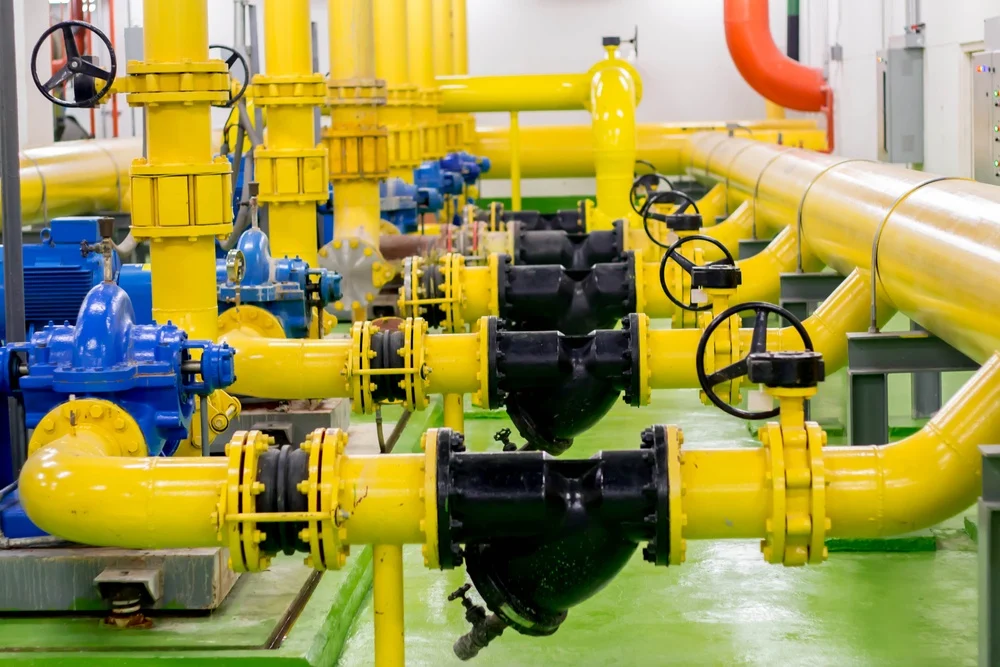Flexibility in Design:
When compared to more conventional HVAC systems, chilled water air conditioning systems provide more design freedom. Chiller water systems can be easily modified to suit the unique requirements of each given area due to their modular design. Chiller water systems can be easily adjusted to meet the specific cooling needs of any structure, be it a tiny office or a massive industrial complex, without requiring major structural changes.
In addition, renewable energy sources like solar panels or geothermal heat pumps, as well as HVAC systems, can be seamlessly linked with chilled water systems. Optimal energy usage and improved occupant comfort are both made possible by these integrated climate control technologies.
Cost Savings:
Cooled water air conditioning systems not only save energy, but also money in the long run. Although chilled water systems have a larger initial investment than traditional systems, they end up saving a lot of money in the long run due to their lower operating costs and fewer maintenance needs.
Fewer moving parts in chilled water systems mean less maintenance and fewer mechanical problems compared to more conventional air conditioners. Owners of the building can save money on service and repair expenditures due to decreased downtime and lower maintenance costs.
Future-Proofing And Scalability:
Chilled water air conditioning systems have the added advantage of being scalable and future-proof. Chilled water systems are designed to be easily expanded or adjusted to meet the evolving needs of buildings, eliminating the need for costly renovations or replacements.
Chiller water systems are versatile enough to fulfil the changing needs of contemporary structures, whether that’s through the incorporation of new technology to increase energy efficiency or the addition of capacity for cooling to accommodate building expansion. Investments in HVAC infrastructure may be future-proofed with this adaptability and flexibility, guaranteeing that buildings will remain comfortable, efficient, and sustainable for years to come.
Reduced Noise Pollution:
Reducing noise pollution in urban and residential regions, chilled water air conditioning systems can make both indoors and outdoors quieter. For areas where noise is an issue, such as residential areas, schools, and healthcare institutions, chilled water systems are a great alternative to conventional air conditioners that use noisy fans and compressors.
Chilled water systems make buildings more pleasant to live and work in by reducing noise levels, which in turn encourages inhabitants to relax, concentrate, and be productive. An additional benefit of chilled water systems is the reduction of outside noise, which makes for a more peaceful environment and an improved standard of living for everyone.
Enhanced Space Utilization:
More efficient use of a building’s space is possible with chilled water air conditioning systems because of their improved space utilization capabilities. Chilled water systems have the advantage of not requiring as much space for equipment storage and maintenance as standard HVAC systems, allowing for smaller footprints or even outdoor installation.
Because of its compact form, useful internal space may now be used for other things, such extra offices, storage, or leisure spaces. Chilled water systems optimize building layout and functionality by decreasing the footprint of HVAC equipment, hence maximizing usable floor space.
In addition, air handlers and pipes may be easily moved around in chilled water systems because of their modular design, which saves space and doesn’t compromise the building’s aesthetics or functionality. Maximizing space use and functionality, this design flexibility boosts the architectural appeal of structures.
Enhanced Redundancy and Reliability:
The increased reliability and redundancy of chilled water air conditioning systems, as comparison to conventional HVAC systems, gives building owners and operators more assurance. Chilled water systems are designed with fewer moving parts and simpler equipment designs, making them less likely to have mechanical breakdowns and downtime. This means that building occupants can enjoy uninterrupted operation and comfort.
Redundancy elements like multiple chillers, pumps, and cooling towers can be integrated into chilled water system designs to offer backup cooling capacity in case of equipment failure or maintenance downtime. Important for applications like data centers, hospitals, and other mission-critical buildings, this redundancy guarantees service continuity and reduces the likelihood of interruptions to building operations.
Buildings situated in regions susceptible to severe weather or power outages are well-suited for chilled water air conditioning systems due to the increased system durability they offer. The interior air handlers and chilled water pipes used by chilled water systems are more resilient to weather-related dangers like hail and strong winds than the outdoor condenser units used by conventional HVAC systems.
Sustainable Water Management:
Using water as a cooling medium and adopting water-saving technologies and tactics, chilled water air conditioning systems encourage sustainable water management practices. With closed-loop cooling towers and water-efficient fixtures, chilled water systems reduce water usage and wastewater generation compared to conventional HVAC systems that use refrigerants and use a lot of water for cooling tower operation.
The utilization of closed-loop cooling towers minimizes the requirement for both fresh water intake and wastewater discharge by recirculating water inside the system. Furthermore, pumps and fans can be outfitted with water-saving features like variable frequency drives (VFDs) to optimize water flow rates and minimize energy consumption in chilled water systems. While effectively controlling building temperatures, chilled water air conditioning systems conserve water resources and safeguard aquatic habitats by adopting sustainable water management methods.
Energy-efficient:
The energy efficiency of chilled water air conditioning systems is well known. Water is used as a heat transfer medium in chilled water systems, as opposed to conventional air-cooled systems, which rely on compressors to cool air. Since water has a higher heat capacity than air and can absorb more heat per unit volume, this makes heat exchange more efficient. Chiller systems can also use groundwater or cool outdoor air to help with the cooling process, which further lowers energy use by taking advantage of free cooling opportunities.


